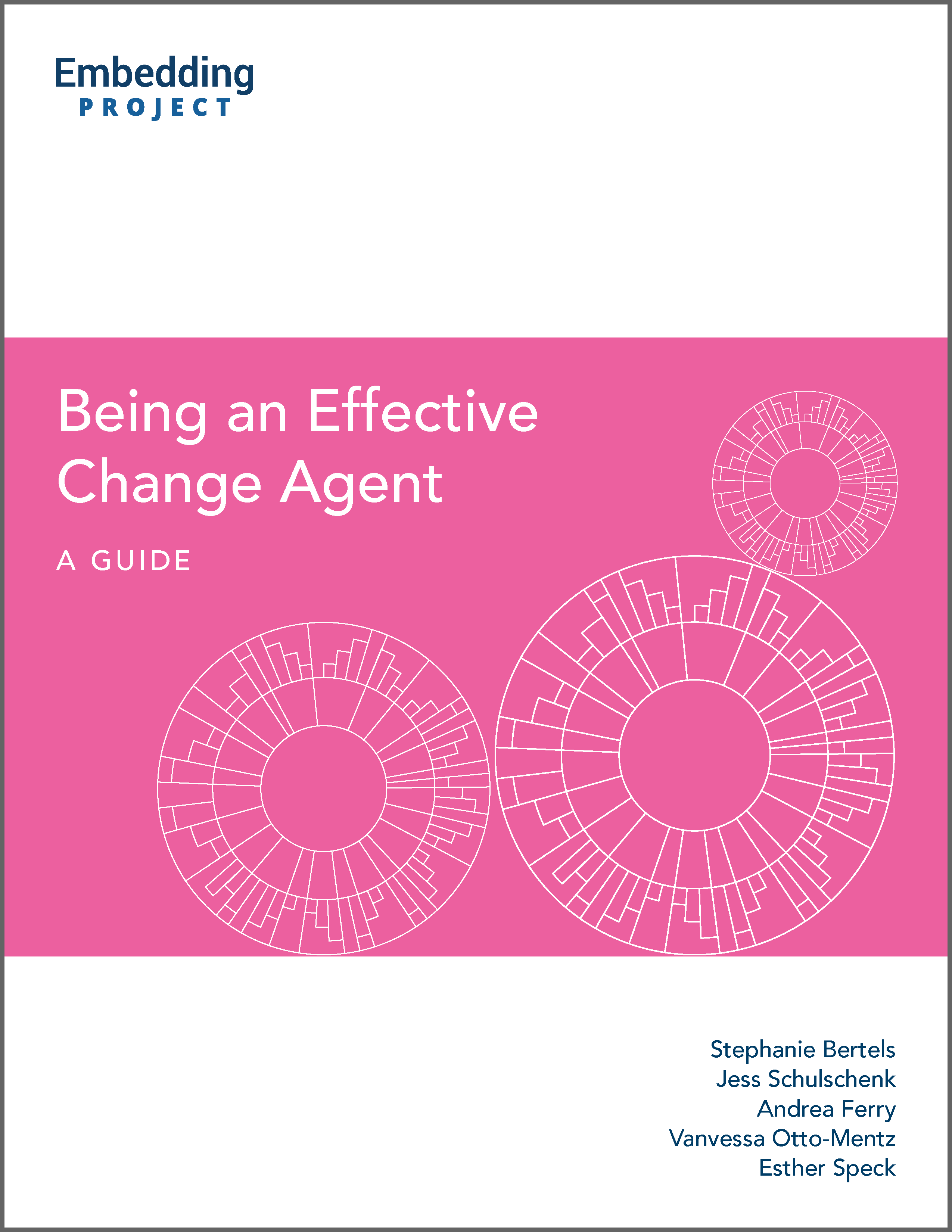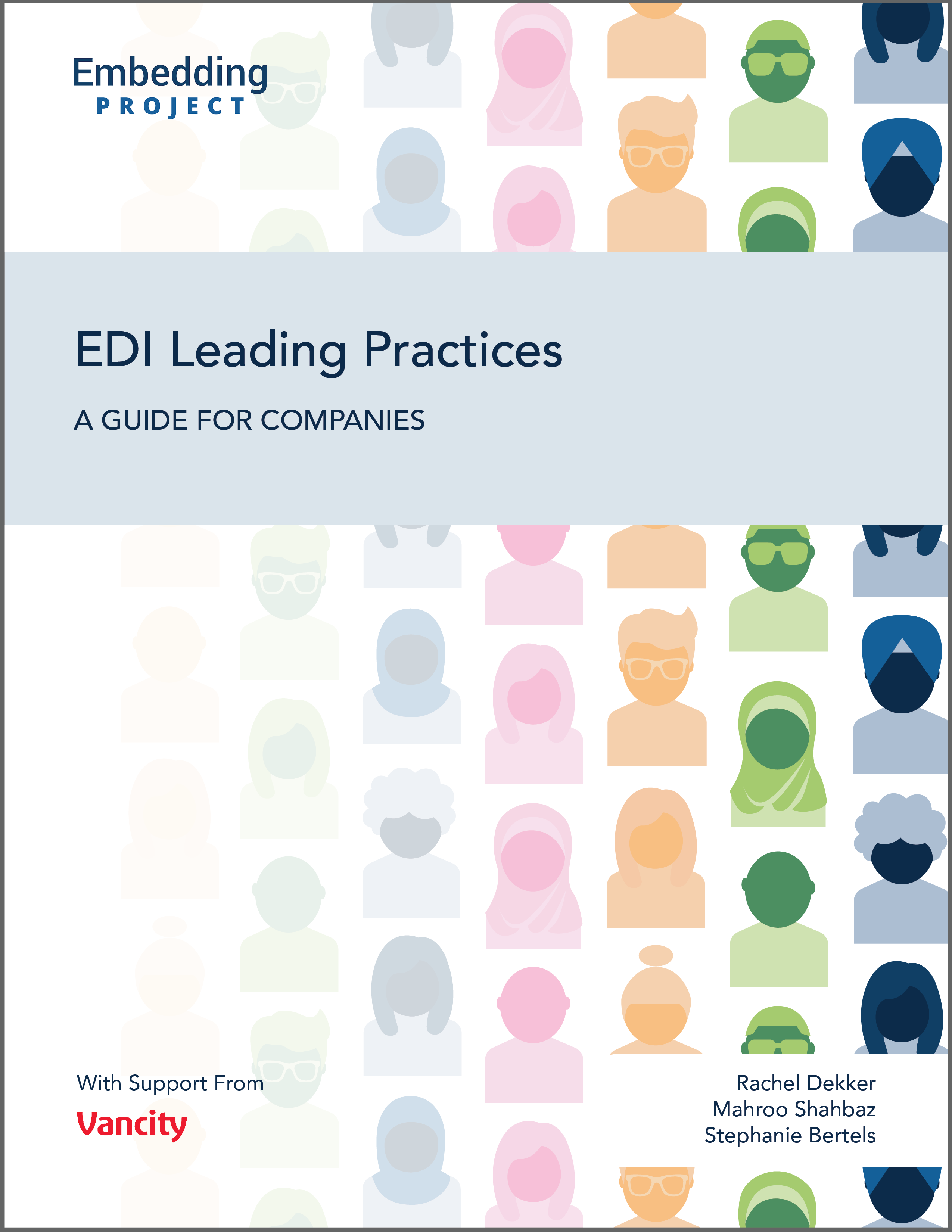Develop Employees
Description
These resources will help you to support employees in an ongoing process of professional growth and training as they develop the knowledge, skills, and efficacy needed to support your company’s sustainability journey.
Share this Practice on:LinkedIn
Resources
Becoming an Agent of Change
This guidebook is based on a multi-year research project we undertook to explore: 'Why and how do privileged insiders become agents of change, challenging institutions for broader societal benefit?' We share what we have learned about the process of becoming an agent of change, incorporating the experiences of the change agents we interviewed in their own words. We hope that this guide helps you to reflect on your own journey of change.
Being an Effective Change Agent
How can you prepare yourself to be a more effective sustainability change agent? This guide was designed to share insights on how change agents can support their CEO and influence thinking on sustainability. It is based on a review of prior academic research on CEO decision-making and combined with the practical experiences and insights gleaned from interviews with over 200 CEOs, board members, and sustainability executives. It explores a broad range of global companies and industries including finance and insurance, material extraction, retail, manufacturing, transportation, logistics, utilities, and agribusiness, as well as a diverse array of ownership structures, including public corporations, privately owned businesses, and co-operatives.
To further support you in bolstering your own effectiveness, we have also developed the Being an Effective Change Agent: Personal Inventory. We encourage you to use this as a tool for reflection, and to help you plan your future personal development.
EDI Leading Practices: A Guide for Companies
Workplace equity, diversity, and inclusion (EDI) is a complex and rapidly evolving space, and increasingly, companies are interested in understanding how to meaningfully advance EDI in their organisations. To help them do so, we consulted EDI research and guidance, reviewed practices of over 100 companies, and sought input from practitioners across a range of industries and geographies. Our Equity, Diversity, and Inclusion Leading Practices Guide offers a comprehensive framework with practices, case studies, and resources to help organisations embed EDI into their strategy, structures, and culture.
The Role of Human Resource Management in Corporate Social Responsibility
This guide provides helpful background research on the connection between sustainability and a variety of HR functions, including recruitment, onboarding, and employee development. It also lays out ten steps that HR managers can take to support embedding sustainability within their organisation, along with examples from leading companies.
Introduction: Components of a successful learning and development strategy
This introductory chapter from Elevating Learning and Development was written by McKinsey & Company. This chapter provides an overview of the value of active learning and development (L&D) in large organisations, and includes nine dimensions that contribute to a strong L&D function. This chapter would be useful to L&D and HR teams focussed on reskilling and upskilling.
How (and why) to develop employee career paths
A growing number of unknowns, disruptions, and stressors, not to mention a growing demand for suitable talent, are driving companies to map out the career paths of their employees to better meet long-term business needs. This short article can help you to understand the early steps you can take towards building this internal talent pipeline.
Closing the Sustainability Skills Gap: Helping businesses move from pledges to progress
This report from Microsoft can help you understand the need for sustainability knowledge and skills in the workforce and how to develop them. Part one outlines Microsoft’s perspective on the scale of the sustainability skills gap, and part two highlights businesses' needs related to workforce sustainability identified through interviews and surveys with large companies. The key findings include the need for basic sustainability fluency for all workers. Part three outlines recommendations for developing sustainability skills based on three key actions: 1) mapping needed skills and knowledge to sustainability jobs; 2) investing in upskilling today’s workforce; and 3) building the sustainability talent pipeline through education systems. Each action is supported by a series of specific recommendations. This resource will be most useful to HR and sustainability practitioners.
Share this Practice on:LinkedIn






